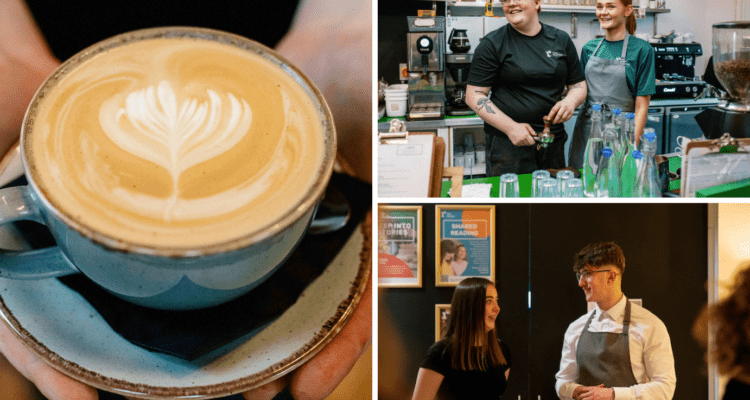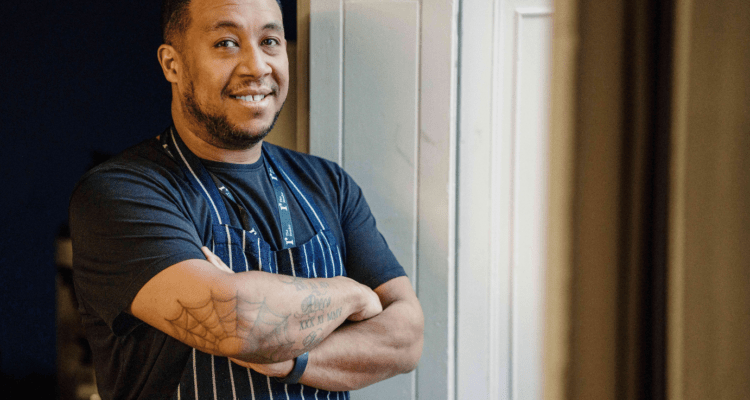Valuing Workplace Well-being
Inspired by her fellow speakers at the Wellbeing at Work conference in London last week, our founder and director Jane Davis has been considering how Shared Reading can create better workplace well-being.
Long ago, when The Reader was first developing its work with libraries, I dropped in to talk to a library manager about a Shared Reading group he had been running for about six months. The group was growing and the manager was excitedly telling me how the health difficulties of various members of the group seemed to be improving when he said, in passing and without thought, 'And it's been brilliant for me too. I never go sick on a Monday anymore...'
Last week I was a speaker at a Wellbeing at Work event and that comment came to mind as I prepared my talk. Shared Reading helps at work. Why? The simple answer is – reading together helps us share meaning. Sharing meaning is one of the things humans need to do. We might not notice it when it is going well, but we sure do notice when it is absent. Shared Reading helps people create bonds, and bonds – generally speaking – makes us feel better.
"I never knew I was capable of something like this; it’s been fantastic."
Tesco staff member and Community Champion trained to deliver Shared Reading sessions in local community
At the conference I learned a lot from other speakers and conference attendees about what workplaces offer for employees and the ways in which positive psychology, singing, sleep science, comedy and design can help us all feel better at work by building bonds and allowing personal reality to have some space in the workplace where often the pressing tasks take precedence over personal needs.
Does any of that sound a bit fluffy? But a less fluffy conference kick-off I’ve yet to witness.
The Wellbeing at Work event began with speeches from three men who, if you passed them on Bond Street, might appear so well protected by wealth and success as to be impervious to life's slings and arrows. Of course, as the Book of Job tells us, ‘man is born to sorrow as the sparks fly upward’. Where ‘human being’ meets ‘the world’ pain is almost inevitable, but private suffering isn't always visible, so it is easy to forget that big truth.
Listening to Brian Heyworth, Jeremy Connick and Geoff McDonald talk about their personal breakages in public was a moving revelation. Brian (Global Co-Head, Financial institutions Group, Global Banking & Markets Division, HSBC) spoke about losing his high-flier job and the incredible confidence-builder it was, after a six month recovery period, to be offered a job by his boss at HSBC. This was ‘the confidence to be myself’ he said, in a phrase which recalled for me the many people in Shared Reading groups who have said something very like that to me or others over the past decade. ‘Confidence’ is a key outcome for members of our groups.
Geoff McDonald (Former Global VP of HR, Unilever; Advocate and Campaigner) spoke about the need to move away from the language of resilience – a language which seems to suggest one has to be able to withstand stuff, and might lead to ‘man-of-iron’ thinking. In fact, Geoff prompted us, wouldn’t it be better to think in terms of resourcefulness? As in, what resources do we have, what resources are we giving our children and each other, in order to help us cope with, live through, difficult times.
I thought of the old lady in the first Care Home we worked in, saving the poems we read week after week. She stashed them under her mattress so that no one could throw them away. I thought of the woman I saw fold up a poem and take her purse from her handbag and carefully put the poem where the notes might go. Resource. Value.
And then Jeremy Connick (Partner, Clifford Chance) spoke about living and working through a personal tragedy, and the need for workplaces to be able to support staff during such times. I expect some members of the audience, like myself, were moved to tears by what Jeremy said, and the clear, straightforward, human way he undramatically told the minimum of his own difficult story.
I wanted to say thank you to all three men for speaking out so loud and clear and so personally about mental health at work.

"It was a really useful opportunity to get to know a bit more about my colleagues that I hadn’t really interacted with before. I loved the literature that we read but it was the experience that felt even more important - the sharing and bonding aspect was really valuable."
Thomas Prince, Associate Solicitor at DLA Piper and participant of pilot Shared Reading project
I spoke about how reading together at work can help us get to know one another in non-work ways, and I read a poem, First Lesson by Philip Booth, that one of my colleagues had introduced me to when she was still an apprentice. I could see many people in the audience were moved by the poem, and one or two came up to me later to tell me of the electric shock they had experienced on feeling the reality of the poem touch them. ‘Hairs stood up on my arms’ said one woman. And another, ‘Brought a tear to me eye…’
This is what literature is for: poetry takes us to the deep places. We don’t have to be able to analyse it or even think we understand it. Just listening will do. Who puts good models, resources, in our hearts, Geoff asked? Great writers do and we can look to them for that, at home, in personal life, and at work.
In England in 2013, the population stood at 53 million, and that year 53 million prescriptions for anti-depressants were issued. Many of those prescriptions will have been necessary and helpful. But an equal number will have been issued simply because neither we nor our GPs know what to do about unhappiness, loneliness, meaninglessness. We lose £16bn each year from workplace absence through sickness. Shared Reading is not a cure, but it is a resource that might sometimes help, at home and at work.
“Just six minutes of reading per day can reduce stress by up to 68%" - University of Sussex, 2009
Get in touch and be part of the story...
Find out more about The Reader's Workplace Well-being projects.
Share
Related Articles

We’re Hiring! Join our Front of House Team
We're hosting a Recruitment Day at the Mansion House, Calderstones Park on Tuesday 16 April as we look to expand…

Meet Jeff the Chef
Jeff Gardner is Executive Chef at The Reader and creates the delicious menus for the Cafe, Garden Parties and private…

‘I Want My Hat Back’ The Storybarn reads along with BSL
We love welcoming new friends to our magical children’s play space the Storybarn in Calderstones Park for Birthday Parties and…


